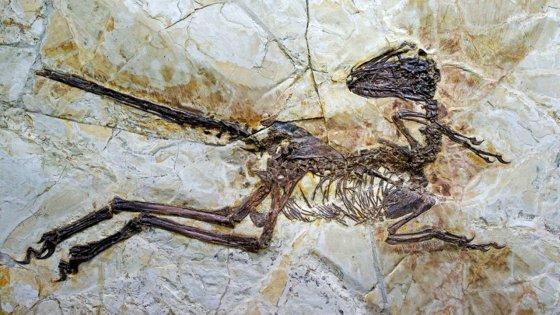By Kaylan Kha
Features Editor
On Nov. 10 a paper published in the journal Nature Scientific Reports stated that a new species of dinosaur was discovered in a construction site near Ganzhou, China. Construction workers were clearing rocks with dynamite when they unearthed the fossil.
The fossil belongs to a species known as oviraptorosaurs. In the past few years, different species of these dinosaurs have become more prevalent, showing up in North America and Asia.
Oviraptorosaurs are distinguished by their sharp beaks and toothless heads. Based on the remains that have been found, they also can range from four to 22 feet in length.
What makes these dinosaurs different from others are the crests found at the top of their heads that are used to attract mates.
“They are similar to horns in some mammals today,” geologist Steve Brusatte told National Geographic. “Often, different mammals have different types of horns, and that helps define the different species.”
Scientists believe that the creation of these dinosaurs can be credited to evolutionary radiation, in which organisms evolve from a common ancestor and develop different traits and niches.
The fossil that was recently discovered has been dubbed Tongtianlong Limosus, which translates to “muddy dragon on the road to heaven.” The name was inspired by the dinosaur’s position in the fossil, which portrayed it dying, as it struggled to free itself. The dinosaur was trapped in mud at the time and became fossilized with its wings extended and its beak tilted upwards.
“We’re lucky that the mud dragon got stuck in the muck,” Brusatte said, “because its skeleton is one of the best examples of a dinosaur that was flourishing during those final few million years before the asteroid came down and changed the world in an instant.”
Tongtianlong was estimated to have lived during the Cretaceous Period 65 million years ago and was the sixth dinosaur of the species to be found. The amount of oviraptorosaurs found in a concentrated area furthers the belief that dinosaurs were still thriving in that period of time.


